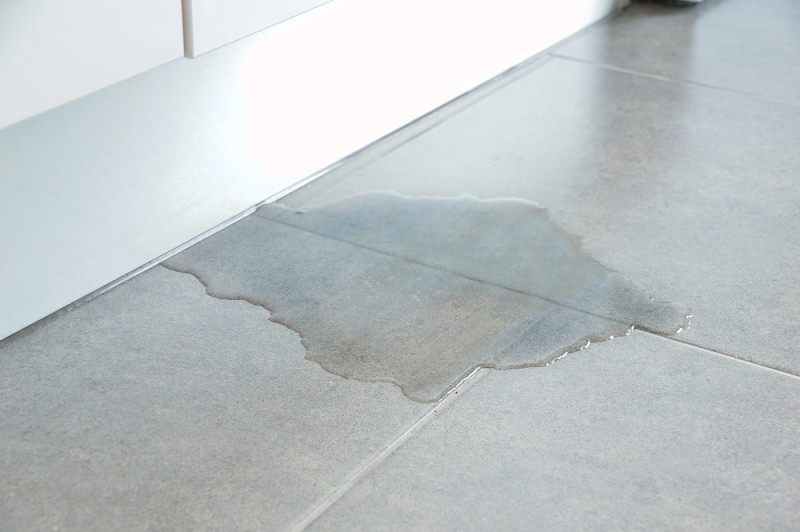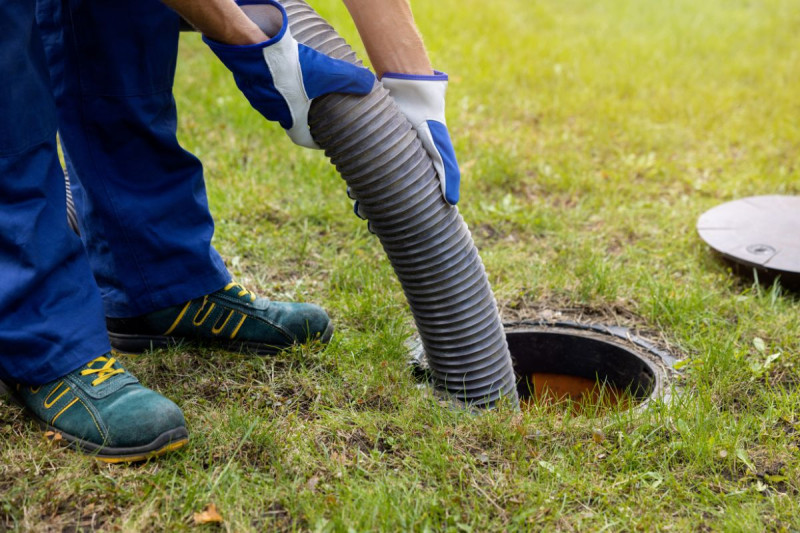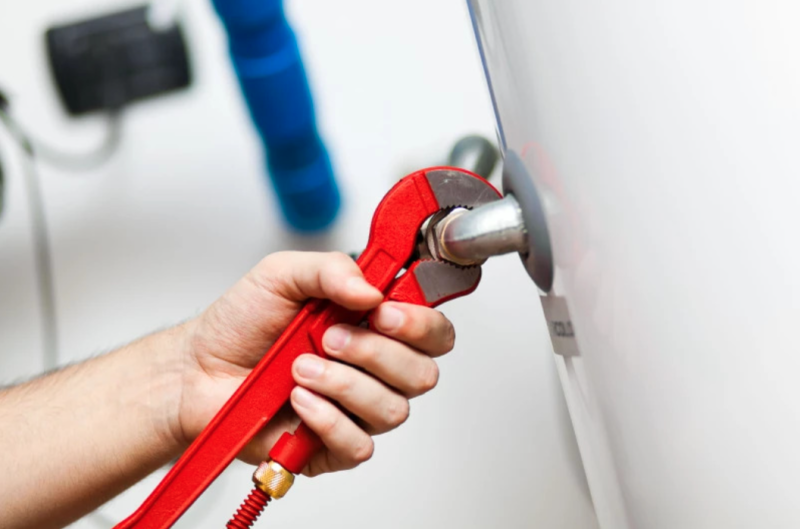What’s so terrible about a leaking faucet or showerhead? After all, you can see them, hear them and, very often, fix them yourself…before the constant dripping drives you plumb crazy.
But what about those leaks that aren’t so easy to spot? Say, for example, water leaking from a pipe inside one of your walls, or behind your refrigerator from a crack or gap in the connection to your sink?
Those are the kind that can cause the most damage precisely because they aren’t readily apparent. And yet even hidden water leaks have a way of informing you of their existence.
What are the signs that may indicate you may have a hidden water leak?
Hidden water leaks can be tricky to identify, as they are not always easily visible. However, certain signs may indicate you may have a hidden water leak in your home.
Firstly, if you hear water running even though no taps or fixtures are in use, this could be an indication that there is a leak somewhere in your plumbing system. Another sign to watch out for is the presence of mould or mildew, particularly in areas that are consistently damp. If your water bill is considerably higher than normal, despite your usage remaining relatively constant, this could also indicate a leak.
Additionally, if you notice warm areas on floors in your home or on garage floors, this may be an indication of a hot water leak.
Lastly, if you detect unusually wet patches on your lawn or garden or water pooling, this could be an indication of a water leak underground.
How do I find the water leak location?
Now that you’ve established that you may have a water leak somewhere, the next step is pinpointing where exactly. Some signs are obvious, however, so leaks, especially an underground water leak, can be a little more challenging to pinpoint. Here are some steps you take to try and locate a hidden water leak.
1. Turn off all water fixtures and appliances in your home
This includes taps, washing machines, and dishwashers. Generally, if you continue to notice water running from these after the water supply has been switched off, you’ll likely know for sure that you have a water leak somewhere.
2. Check your water metre
See if the water metre is still running. If it is, then you likely have a leak somewhere in your plumbing system.
3. Inspect the walls and ceilings
Check the walls and ceilings in your home for any signs of water damage, such as damp patches, peeling paint or wallpaper, or cracks in the walls or ceiling. Leaks in your water pipes can often be found in the walls or ceiling.
4. Inspect the flooring
Check the floors in your home for any signs of water damage, such as buckling or warping, or damp or wet areas on the floor. Leaks in your plumbing system can cause permanent damage to your floors so it’s important to identify them straight away.
5. Check the areas around the fixtures
Such as sinks, toilets, and showers for any signs of leaks. You may notice dripping water or water stains around the fixtures, despite the water supply having been turned off.
6. Call a professional plumber
If all else fails, it may be time to call in the experts. A plumber can use a leak detection device if necessary. These devices use sound or thermal imaging to detect leaks, making it easier to pinpoint the exact location.
Swan’s Professional Plumbing is here to deal with any water leaks
These are just some of the clues that somewhere in your home or on your property, water is leaking where it shouldn’t be. And that’s all the reason you need to contact Swans Professional Plumbing for our water leak detection and repair services. Using the latest electronic leak detection equipment, we can quickly and accurately pinpoint the location and extent of the leak.
Then, using minimally invasive tactics, we can fix the leak or repair the broken pipe as needed. Equally important, we can prevent damage to your home or business property before it happens or stop it from progressing any further. For water leak detection or any other home or business plumbing need, contact Swan’s Professional Plumbing today.
Did you know we offer our members FREE plumbing health checks? Ensure any potential leaks or plumbing problems are identified early by booking a free health check. Call our team on 1300 634 581 to book your free plumbing health check.
FAQs
Finding an underground water leak can be a tricky and complex process that requires patience and expertise. The first step is to visually inspect your property for any suspicious wet spots such as lush patches of grass, cracked concrete, or buckled driveway surfaces. If there is excessive moisture in the soil surrounding your foundation walls, it's likely due to a potential leak.
Next, you'll need to call out a licensed plumber equipped with specialised equipment such as acoustic listening devices. These tools will locate the exact location of the water line by emitting sound waves that travel through plumbing pipes beneath the ground. They allow users to detect even the smallest pressure changes within a pipe system which indicates a possible leak present somewhere along its length.
Your plumber may also choose to opt for CCTV video inspection services which involve sending cameras down into sewer lines for optimal viewing of their interior components. This technique allows plumbers to accurately pinpoint areas where damage could exist and then act accordingly from there by either replacing broken or corroded parts or installing valves for shutting off/on supply lines when necessary.
Fixing underground water leaks can be a tricky task, but it’s not impossible. The best and safest way to repair an underground leak is to employ the services of a skilled plumber. A plumber will first assess the extent of damage caused by the pipe leak before recommending appropriate solutions. Depending on how severe your damage is, professional plumbers may use various techniques including excavating and replacing parts of damaged pipes, pipe relining, or simply patching up minor holes in existing pipes. It’s important that you hire a qualified professional who has experience dealing with leaks as this will reduce your risk of an incorrect repair job or further damage due to inexperience or oversights.
Hidden water leaks can have serious consequences if left unfixed. Over time, these hidden leaks can lead to increased water bills and damage to surrounding materials, including drywall and ceilings in the home. Underground water leaks can lead to damaged flooring. This can cause significant structural damage if left unchecked, leading to major repair work costs that could easily reach thousands of dollars for homeowners.
Water damage from hidden water leaks also presents a risk of mould growth throughout the house due to potential trapped moisture from leaking pipes or fixtures. Mould spores are hazardous components that can cause allergic reactions and other health problems; these require specialised remediation services which could be costly as well.
Finally, even small leaks in your pipes that go unaddressed tend to become worse over time; this means a leak now will only worsen unless it is fixed quickly. The longer you wait before fixing a leak, the bigger it becomes - making it more difficult (and expensive) to repair later on down the line! Therefore, if you suspect a leak, get a leak detector plumber onto it straight away so it can be detected early.



